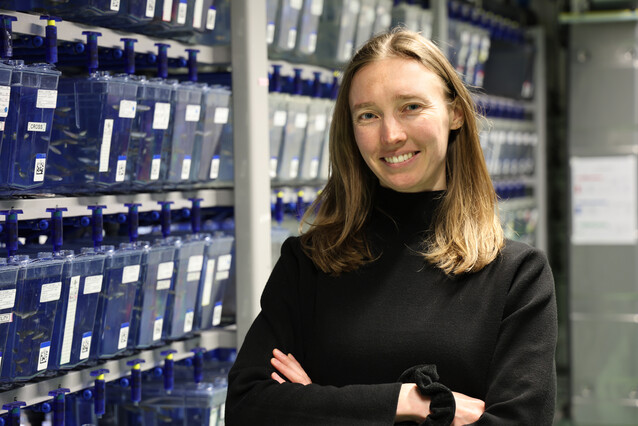HFSP fellowship for Ida Jentoft
The Human Frontier Science Program (HFSP) has selected Ida Jentoft, a postdoctoral researcher in Andrea Pauli’s lab, for one of its highly competitive Long-Term Fellowships. Over the next three years, the fellowship will support Jentoft’s research into the molecular mechanisms that regulate translation during embryonic diapause—a suspended developmental state that helps embryos survive extreme environmental conditions.
HFSP Long-Term fellowships are prestigious and highly competitive awards that support postdoctoral researchers in undertaking innovative, high-impact projects in the life sciences across international borders. Ida Jentoft, a postdoc in Andrea Pauli’s lab, has been selected for one of these fellowships and will investigate how gene expression is regulated at the level of protein production during developmental arrest.
Jentoft studies the African turquoise killifish (Nothobranchius furzeri) to research how protein production is regulated during embryonic diapause. This species has evolved remarkable survival adaptations to cope with the harsh conditions of its habitat—seasonal ponds in southeastern Africa that completely dry up during the dry season. While the adult fish do not survive, their embryos enter a suspended state known as diapause, pausing development until conditions improve. This strategy has independently evolved in various vertebrate and invertebrate species as a mean to protect the next generation. Jentoft’s research leverages the Pauli lab’s strong background in studying translational control in dormant biological systems and benefits from the advanced scientific environment at the IMP.
Ida Marie Astad Jentoft studied molecular biomedicine at the University of Copenhagen. With funding from a Boehringer Ingelheim Fonds fellowship, Jentoft then joined the lab of Melina Schuh at the Max Planck Institute for Multidisciplinary Sciences in Göttingen, Germany, for her PhD. Her doctoral research focused on the role of cytoplasmic lattices, long-lived filamentous structures specific to mammalian egg cells, in storing maternal proteins to ensure their faithful inheritance to the embryo. Jentoft’s research was recognised with an International Birnstiel Award; as well as an Otto-Hahn-Medal, and Otto-Hahn-Award of the Max Planck Society, and an EMBO Postdoctoral Fellowship.
Further Reading
